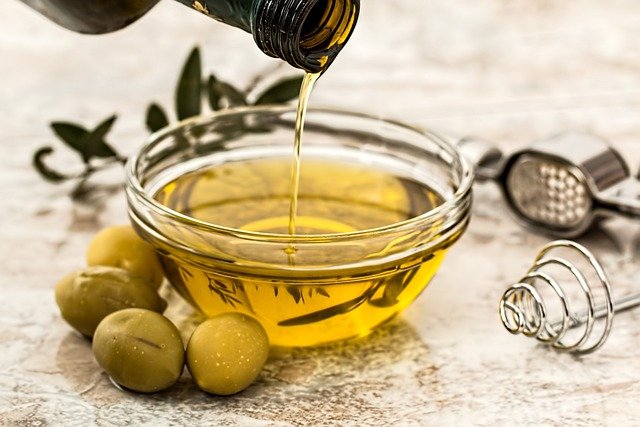
1. What is an Oil Bath?
An oil bath refers to the practice of applying warm oil to the body, either for cleansing, therapeutic, or relaxation purposes. It is a popular tradition in several cultures, including Ayurvedic medicine, where it is used to nourish and hydrate the skin and muscles.
Typically, natural oils like coconut oil, sesame oil, olive oil, or mustard oil are massaged onto the skin and left on for a period before bathing or showering. The oil is absorbed by the skin, providing nourishment, and it can also help with detoxification by promoting blood circulation and reducing muscle tension.
Oil baths are commonly done as part of a spa or self-care routine and are believed to promote overall well-being.
2. What is Body Heat, and What Are Its Symptoms?
Body heat refers to an elevated internal temperature, typically caused by factors like fever, inflammation, stress, or external heat sources. Body heat is different from the body’s normal temperature (around 98.6°F or 37°C) and can be an indicator of various health conditions.
Common Causes of Body Heat:
- Fever (due to infections, illnesses, or conditions like the flu)
- Hormonal changes (e.g., during menstruation, pregnancy, or menopause)
- Environmental factors (hot weather, high humidity)
- Spicy foods or caffeine (which can temporarily raise body temperature)
- Excessive physical activity (causing overheating)
Symptoms of Body Heat:
- Flushed skin or a feeling of warmth
- Sweating (excessive sweating can be a sign of overheating)
- Increased heart rate
- Headache or dizziness
- Fatigue or weakness
- Nausea (in extreme cases)
- Dehydration (due to loss of fluids through sweat)
If body heat is accompanied by high fever, chills, or persistent symptoms, it might be a sign of illness, and medical attention should be sought.

3. What Are the Health Benefits of an Oil Bath?
Oil baths, particularly in Ayurvedic practices, are believed to offer several health benefits. Some of the primary benefits include:
1. Skin Health:
- Hydration: Oil baths provide deep hydration to the skin, helping to lock in moisture and prevent dryness.
- Nourishment: Oils like coconut oil and sesame oil are rich in vitamins and antioxidants that nourish the skin and improve its appearance.
- Skin Healing: Oils have anti-inflammatory properties that can help soothe skin irritation, rashes, or minor wounds.
2. Muscle and Joint Health:
- Relaxation: Massaging oil into the skin and muscles helps to relax tense muscles and reduce stiffness. It is particularly beneficial for those with joint pain, arthritis, or muscle soreness.
- Improved Circulation: The gentle massage promotes better blood flow, which can relieve pain, reduce swelling, and improve overall muscle flexibility.
3. Stress Relief and Relaxation:
- Mental Relaxation: The process of applying warm oil can have a calming effect on the nervous system, reducing stress and promoting mental clarity. The ritual of an oil bath can also help you unwind after a long day.
- Better Sleep: Regular oil baths, especially before bedtime, are said to improve sleep quality by calming the mind and body.
4. Detoxification:
- Oil baths are sometimes used in Ayurveda to promote detoxification. The oil is thought to help draw out impurities from the skin and body, supporting the body’s natural detox processes.
5. Improved Flexibility and Joint Mobility:
- Regular oil baths can increase flexibility and improve joint mobility. This is especially helpful for those who engage in physical activity or have stiff joints.
6. Anti-Aging Benefits:
- Oils like sesame oil are rich in antioxidants, which can protect the skin from oxidative stress and help slow down the aging process. They can improve skin elasticity and reduce the appearance of fine lines and wrinkles.
7. Hair Health:
- While primarily for the skin, oil baths can also be beneficial for the hair. The oils used in an oil bath can be massaged into the scalp to promote hair growth, reduce dandruff, and improve hair strength and shine.
Summary:
- Oil bath is the process of applying warm oil to the body for therapeutic, cosmetic, and relaxation purposes.
- Body heat refers to an elevated internal temperature, which can be caused by various factors and is often associated with symptoms like sweating, flushing, headache, and fatigue.
- The health benefits of oil baths include improved skin health, muscle relaxation, stress relief, better circulation, and detoxification. They are also beneficial for joint flexibility, relaxation, and even hair health.

1. What is an oil bath?
- Short Answer: An oil bath involves massaging warm oil into the skin to hydrate, nourish, and relax the body. It’s often used in traditional wellness practices like Ayurveda.
2. What are the benefits of an oil bath?
- Short Answer: Oil baths improve skin health, relieve muscle tension, reduce stress, promote better sleep, and improve circulation.
3. How often should you take an oil bath?
- Short Answer: You can take an oil bath once a week for general wellness, but some people do it more often, especially if they have dry skin or muscle pain.
4. What oil is best for an oil bath?
- Short Answer: Common oils for oil baths include coconut oil, sesame oil, olive oil, and mustard oil. Choose based on skin type or personal preference.
5. Can an oil bath help with muscle pain?
- Short Answer: Yes, oil baths can relieve muscle pain by promoting relaxation, improving circulation, and reducing inflammation in muscles and joints.
6. What causes body heat?
- Short Answer: Body heat can be caused by fever, hot weather, spicy foods, physical activity, or hormonal changes. It can also signal health issues like infections.
7. What are the symptoms of increased body heat?
- Short Answer: Symptoms include flushed skin, sweating, headache, dizziness, nausea, and a rapid heartbeat.
8. How do I cool down body heat naturally?
- Short Answer: Drink plenty of water, stay in a cool place, wear loose clothing, and avoid spicy foods or caffeine to reduce body heat naturally.
9. Is an oil bath good for dry skin?
- Short Answer: Yes, oil baths are great for dry skin as they provide deep moisture and nourishment, leaving skin soft and hydrated.
10. Can oil baths improve sleep?
- Short Answer: Yes, oil baths can promote relaxation and reduce stress, helping to improve sleep quality.
Oil Baths: A Natural Remedy for Skin, Muscles, and Stress Relief
What is an Oil Bath? Exploring Body Heat Symptoms and Health Benefits
The Healing Power of Oil Baths: Skin Care, Stress Relief, and More
Oil Bath 101: Benefits for Skin, Muscles, and Mental Wellness







